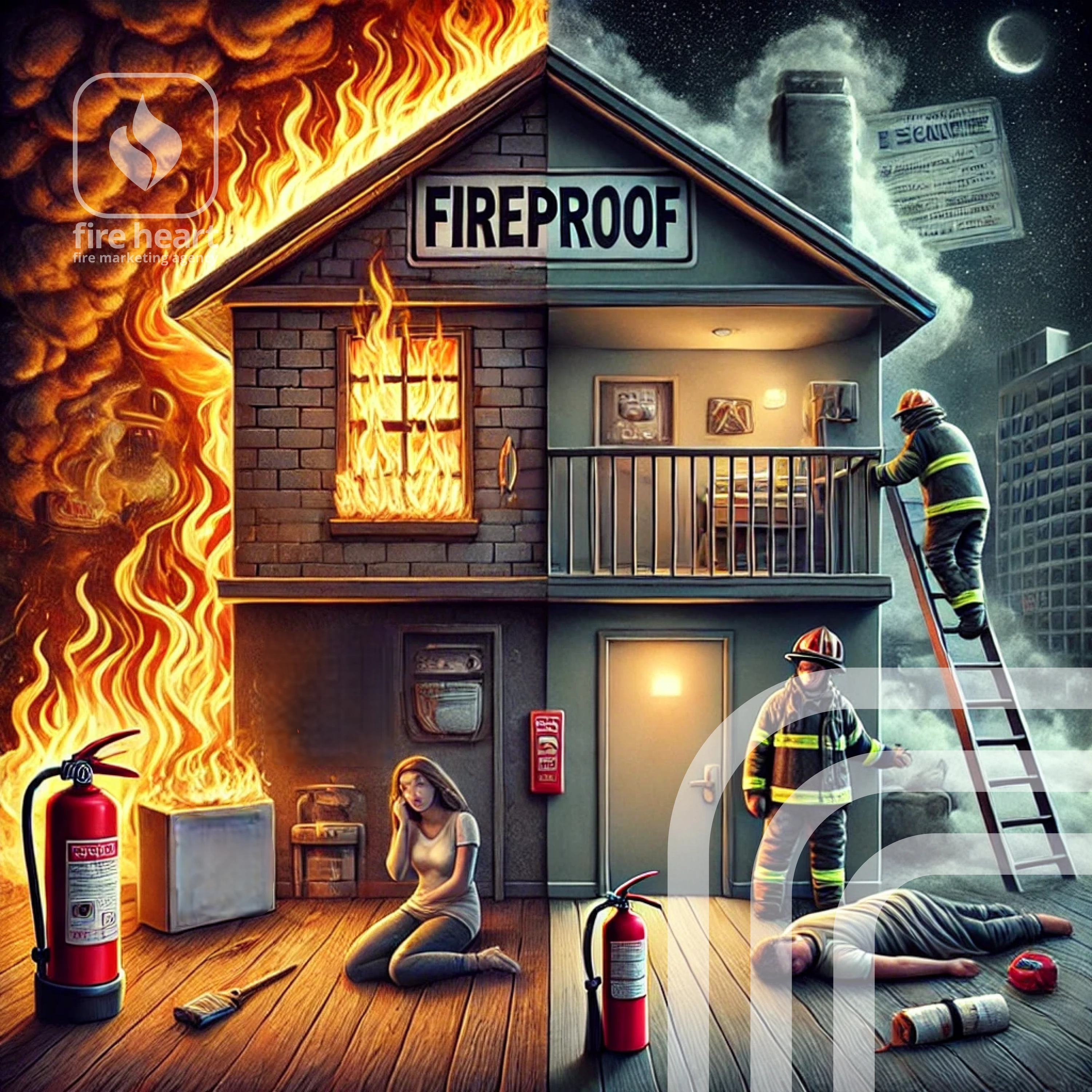
Fireproof or Foolproof? The Lies We Tell Ourselves About Fire Safety
There’s an old saying that common sense isn’t all that common, and nowhere is that more evident than in the world of fire safety. Folks will believe just about anything if it lets them sleep a little easier at night—even if that belief is about as solid as a house made of matchsticks.
We like to think that because we have fire-resistant materials, smoke alarms, and a half-forgotten fire drill from grade school, we’re practically invincible. But let me tell you something: fire does not care about your illusions. It doesn’t care about the “fireproof” label on your furniture, the fancy extinguisher you bought five years ago but never checked, or the wishful thinking that “it won’t happen to me.”
So, let’s strike a match and expose the biggest lies we tell ourselves about fire safety — before we end up learning the hard way.
"It’s Fireproof, So I’m Safe"
"I Have a Smoke Alarm, So I’ll Be Fine"
- When was the last time you tested your smoke alarm?
- Do you even know if the battery is still good?
- Have you ever replaced it, or do you just assume it will live forever?
"I Know Where the Fire Extinguisher Is"
- You know where it is (not buried behind junk in a cabinet).
- It actually works (yes, they expire).
- You know how to use it (hint: pulling the pin is not enough).
- You grab it before the fire gets too big (because no extinguisher can save you once your kitchen is a raging inferno).
"I’ll Smell the Smoke and Wake Up in Time"
"I Have Insurance, So I’ll Just Rebuild"
Ah, yes. The word "fireproof" — the great marketing illusion. It makes people feel safe while offering about as much real protection as an umbrella in a hurricane.
Let’s get one thing straight: Nothing is truly fireproof. Fire-resistant? Sure. Fire-retardant? Maybe. But given enough heat, time, and bad luck, anything will burn—including the things labeled “fireproof.”
Reality Check: That fireproof safe in your bedroom? It’s only rated to withstand fire for 30 minutes to an hour before your important documents turn to crispy confetti. Your fireproof insulation? It might slow the flames down, but it won’t stop them forever. Even your “flame-resistant” furniture can still smolder, melt, and release toxic smoke—just a slower, more dramatic version of burning.
If you’re betting your entire survival strategy on a marketing label, you’re playing a dangerous game.
Ah, the mighty smoke alarm — a noble invention, but one that’s as useful as a doorbell on a burning house if no one bothers to check if it actually works.
People assume that because they installed a smoke alarm once upon a time, it will magically save them in a fire. But ask yourself:
The truth is, a dead smoke alarm is nothing more than wall decoration. And if it does go off in the middle of the night, will you even wake up? Studies show that many people sleep right through their alarms, especially if they’ve been conditioned to ignore false alarms from burnt toast and bad cooking.
Reality Check: A working smoke alarm buys you time, but it doesn’t guarantee survival. The real question is — do you have a plan?
Do you? Do you really?
And even if you do, can you actually use it? Because let me tell you, when flames are licking at your curtains, that is NOT the time to start reading the instructions.
A fire extinguisher is only useful if:
People love to buy fire extinguishers and then never think about them again — as if just owning one wards off fire like a lucky charm. It doesn’t.
Reality Check: A fire extinguisher isn’t a decoration. It’s a tool. And a tool is useless if you don’t know how— or when — to use it.
Ah, the confidence of a deep sleeper. The idea that you’ll wake up just in time to heroically escape a fire is a nice thought — but also a complete myth.
The truth is, smoke doesn’t wake people up — it kills them in their sleep. In fact, most fatal house fires happen at night, when people are too unconscious to realize their home is filling with smoke until it’s too late.
Reality Check: If you’re relying on your nose to save you, you might as well be relying on a goldfish to call 911. Install working smoke alarms in every bedroom, and don’t bet your life on waking up just in time.
Sure, insurance will pay for a new house, but it won’t bring back your memories, your lost valuables, or — heaven forbid — your loved ones.
And what if your claim gets denied because you ignored fire safety rules? What if the insurance payout isn’t enough? What if it takes years to recover?
Reality Check: Fire prevention is always cheaper than fire recovery. Don’t let "I have insurance" be an excuse to ignore basic fire safety measures.
The Final Word: Fire Safety is Only as Good as You Make It
The biggest lie we tell ourselves about fire safety is that it’s someone else’s problem.
- The manufacturer said it was fireproof, so I don’t have to worry.
- The landlord installed a smoke alarm, so I’m covered.
- The firefighters will get here in time, so I don’t need to act fast.
Wrong. Fire safety isn’t about labels, assumptions, or luck — it’s about planning, action, and awareness.
Fire doesn’t care what you believe. It doesn’t care about your assumptions, your optimism, or your insurance policy. The only thing that will save you is preparation.
So stop believing the lies and start taking action — before reality proves you wrong.
Fire Heart | Fire Safety Marketing Agency
Safeguarding Lives, One Design at a Time
Author:
Pavlo Lapikov